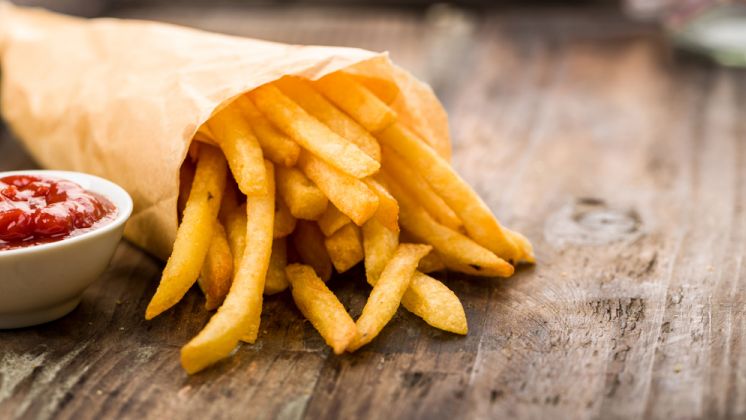How to Stop Loving Fries (and Reboot Your Relationship with Food)
Relax, we’re not saying give them up for good, but you can change your habits of reward for the better

Anyone who can write a book about the global history of the humble but noble sandwich is alright by us. Now, food writer Bee Wilson has turned into a food psychologist of sorts. Her latest book, First Bite: How We Learn To Eat, argues that we’re not predisposed to certain foods and humans are perfectly capable of changing their eating patterns. Here’s how.
Most of our problems with eating are in the brain. We won’t fix them by going on yet another fad diet. “Eat food. Not too much. Mostly plants,” is food writer Michael Pollan’s advice.
Wise words. But to do it, we need to learn to enjoy eating real food more than junk, to stop eating when we are full, and to appreciate a wide range of vegetables. These are skills that many of us have not yet mastered.
The good news is it’s possible to get better at them and successfully reboot your relationship with food. Instead of trying to make yourself eat what you don’t like, the real secret is to adjust your preferences. We have to find a way to want to eat what’s good for us (give or take the odd pizza). Here’s what you need to know.
Focus less on the food and more on your own responses to it
We waste so much time and energy looking for the perfect food. Is the magic bullet fat or protein? Goji berries or chia seeds? Should we try Paleo or vegan? But nutrients only count when you pick up food and eat it. The real superfood would be one that you enjoy that also happens to be healthy: crisp, sweet apples, say, or a hearty bowl of sweet potato curry or chicken stew.
We label ourselves – ”I’m a real carnivore” or “I’ve got a sweet tooth”. Our tastes become such a strong part of our identity that they feel innate. But given that we are omnivores, human food habits are deeply malleable. We learn how to eat from childhood onwards and can therefore relearn it. The fact that you feel you need a flapjack and a caramel latte every time you do a workout is probably less to do with your own tastebuds than with the way your parents rewarded you with sweets as a child. It isn’t easy to reprogram these habits of reward, but it can be done.
Sign up for workout ideas, training advice, reviews of the latest gear and more.
When we attach moral labels to food (protein: good, carbs: bad), we end up eating in a less balanced way. Take protein. A bit of protein is a good thing, aiding recovery and helping muscle maintenance after exercise. But some men are now gulping protein shakes like water, in the hope of getting an instant six-pack. If your training regime doesn’t match up to your protein intake, you’re risking dehydration, body fat gain and stress on your kidneys.
It’s possible to learn new food habits (though it takes a bit longer than a January diet). Try to avoid the mindset of deprivation and focus on small changes that you can stick to. Gradually add new vegetables to your repertoire. Don’t beat yourself up because you ate a sticky toffee pudding. Cut down on sugar in increments and your palate will slowly change. You find yourself – honestly! – eating broccoli not because you think you should but because you crave it (especially sautéed with chilli and garlic). Win-win.
First Bite: How We Learn to Eat (Fourth Estate) is out now. Buy it on Amazon.
Bee Wilson is the author of First Bite: How We Learn to Eat (Fourth Estate).

